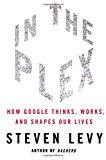So far I’ve talked about capitalism as a metaphor. I know that the business owners and the skeptics who are reading this are saying “Great, but I have to worry about real capitalism.” This post is for you.
When I first started working on the ideas for this book, the economy was great, markets were booming and everyone and their dog was buying a house (take two we’ll finance you). Those days are long gone. Today, even more than then, companies have to watch every dollar. If it doesn’t absolutely have to be spent don’t spend it. But what if I could show you a way too achieve all the things I’ve talked about without any additional variable of fixed cost. I won;t say it’s free because there is one cost: time. Time is money and I won’t disregard it’s value by saying that this is all free. But especially now, I believe the real value of social media is waiting to be realized.
Let me show you what I mean.
What does it cost to ideate a new product, conduct several focus groups, prototype the idea, run more focus groups then if the idea is still alive after being beaten and dragged through the streets take the product to market? For large companies the answer is in the millions of dollars. Even for a small company creating Web based products the answer can be easily thousands of dollars (a figure more significant to a small company than the millions is to the large company).
How much does it cost to reach out to an established online community that’s made up of various social networks both internal and external to your company, share some ideas and come up with an idea? How much does it then cost to take that idea to a slightly wider group of trusted connections for feedback and input? So far are incremental costs are zero. Even the internal social networks can be built using open source software.
There may be some incremental costs when the idea is prototyped, but this can be significantly reduced by using mock-ups and again shared with an ever wider group of trusted contacts internal and external to your company.
Then when the product is launched you have a community of people that feel some sense of ownership because they helped create the product. Their input was instrumental. They become your army of advocates helping spread the word about this great new product. Best of all the total cost is closer to the thousands or hundreds of dollars instead of the millions or thousands.
In this scenario not only is your total cost significantly lower but your product will most likely be better than if it had been designed and built in a vacuum. A better product equals greater returns and if your total costs were lower to begin with you just crushed you Return On Total Investment (ROTI).
This model can be applied to every area that we’ve covered in this series. How much does trust cost? What’s the value of knowledge? Your company is spending some amount on all these activities today. Why not add to them, or where possible, replace them, with the more effective, organic tools that social media provides? Your additional costs can be minimal and your upside can be huge.
The biggest cost to your company will be that, in most corporate settings, processes will need to be adjusted or completely re-worked, and unfortunately big companies just don’t do this very easily. The bigger your company (or at least the bigger your company acts) the harder this will be to implement. The good news is that no one feels very big in this economy and almost every manger in every company around the world is willing to try something new. Especially if it doesn’t *cost* them anything.
There’s no better time to step up and be the hero in your company.
This post is part of my ongoing effort to blog the book I’ve been working on for too long before the end of the year. These are all rough first drafts that have not been edited or even proofread. Comments and patients are requested. You can follow the whole series through the category The Book
Similar Posts:
- Using Return on Marketing Investment to Save Your Assets
- Transparency = Trust. Trust = Greater Profits.
- Death by Success
# of Comments 2
# of Comments 10
# of Comments 2






